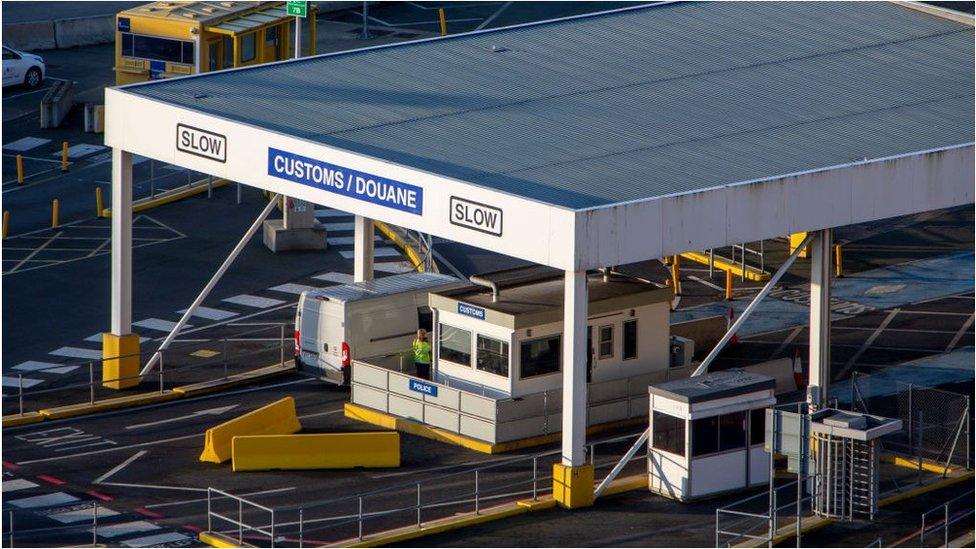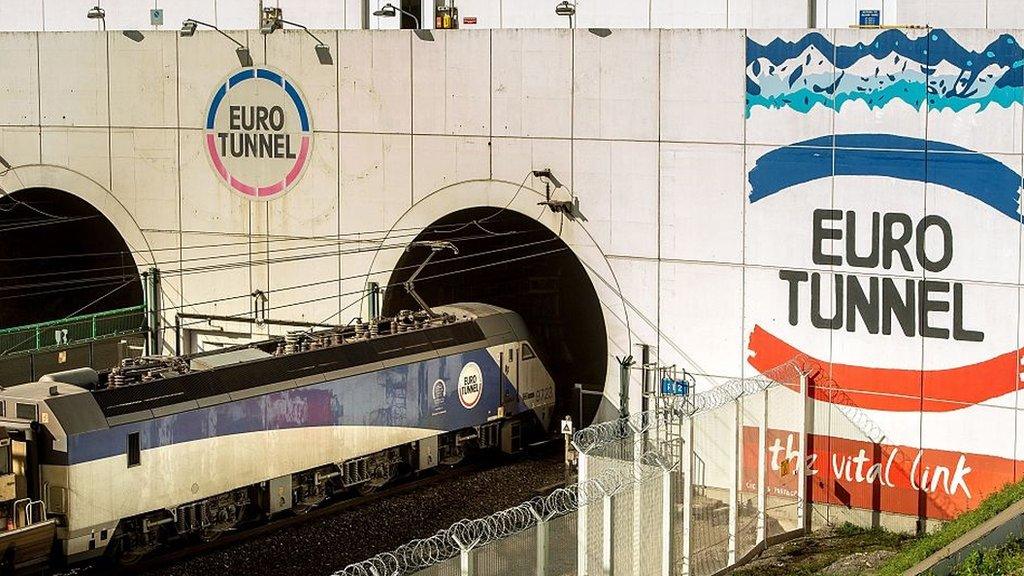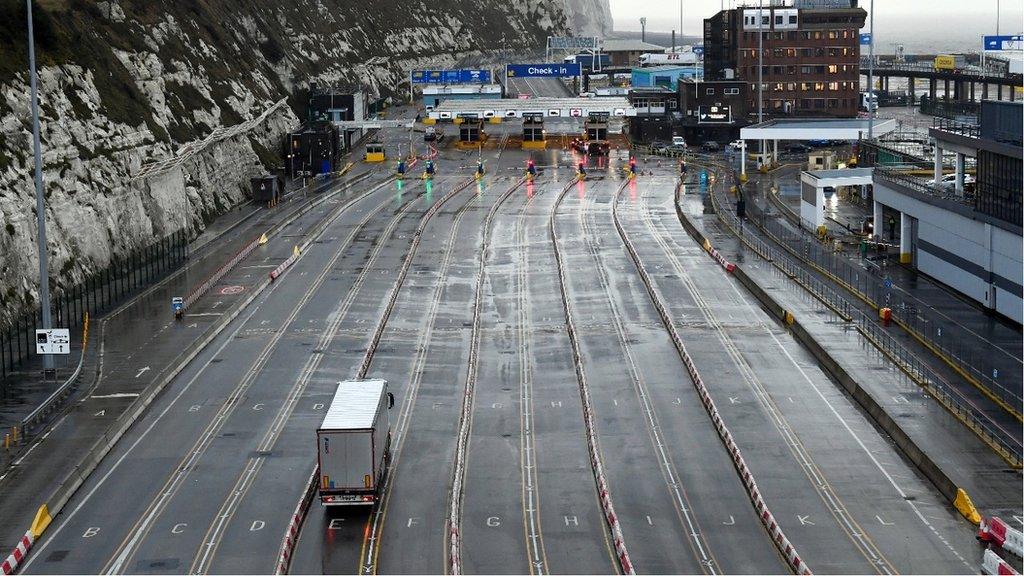Customs staff: Vaccinate us to keep trade flowing
- Published
- comments

Customs operators have pleaded with the government to prioritise vaccinations for staff they insist are key front-line workers in the effort to keep vital supplies flowing into the UK.
One operator told the BBC his staff were working flat out - often up to 16 hours a day - to help traders comply with the new post-Brexit customs requirements.
"A Covid outbreak would be disastrous. Customs clearance staff should be identified as key workers and fast-tracked for vaccination."
Another said he had written to Transport Secretary Grant Shapps and his local MP for Ashford, Damian Green saying any coronavirus-related staff shortages could force them to close.
'Moment of truth'
"We have 14 staff. Two have already had to self-isolate, if we lose any more we would have to consider closing".
Rod McKenzie of the Road Haulage Association supports the argument to accelerate vaccinations of port and customs staff.
"Customs agents are absolutely swamped, they are understaffed by tens of thousands and although volumes have been light thanks to pre-Christmas and pre-Brexit stockpiling, we are approaching a critical point:"
Steve Cock of logistics firm KGH said that volume would begin to build this week and described Friday as "a moment of truth" as volumes would be close to normal, imposing the first serious test of the system's capacity.
Low traffic
The government told the BBC that vaccination priorities were based on clinical vulnerability determined by the Joint Committee on Vaccination and Immunisation.
Although the government said it would be looking at key workers beyond the current priorities - like teachers - that would not come till after phase 1 of the current programme ends. That is not expected till late March at the earliest.
Although the ports themselves have been running reasonably smoothly, that is because many traders aren't getting as far as the ports as their documentation is not complete.
The Dover-Calais crossing last week saw only 40% of its usual traffic for this time of year. Many foreign hauliers have been avoiding the UK for fear of getting stuck on the wrong side of the channel or raising their prices by as much as six times to compensate for the additional risks of congestion.
Cracks in the system have already started to show with large European delivery firm DPD cancelling road deliveries from the UK to the EU while Ocado, M&S, and Fortnum and Mason have cited problems delivering to customers in the EU and Northern Ireland.
Animal products
Fish and seafood exports have been particularly hard hit.
Many small traders who usually club together to share the cost of space on large lorries headed to their primary markets in the EU have hit serious roadblocks.
Products of animal origin now need Export Health Certificates signed off by veterinary professionals.
The burden of getting multiple certificates for single lorries has brought exports to the EU to a virtual standstill for some traders.
The focus in the UK is understandably primarily on food supplies into the UK and although there are some limited shortages being reported in fruit and vegetable supplies, shelves in the UK are showing very few gaps.
The problems are more acute in Northern Ireland, which for the purposes of trade is still part of the EU customs area. For that reason, what is happening to food exports from GB to Northern Ireland is perhaps a useful proxy for what is happening to UK food exports to the EU.
The last thing the UK-EU trade machinery can afford right now is for critical staff - caught in the crossfire of pandemic and Brexit - to be laid low.
- Published31 December 2020

- Published8 January 2021

